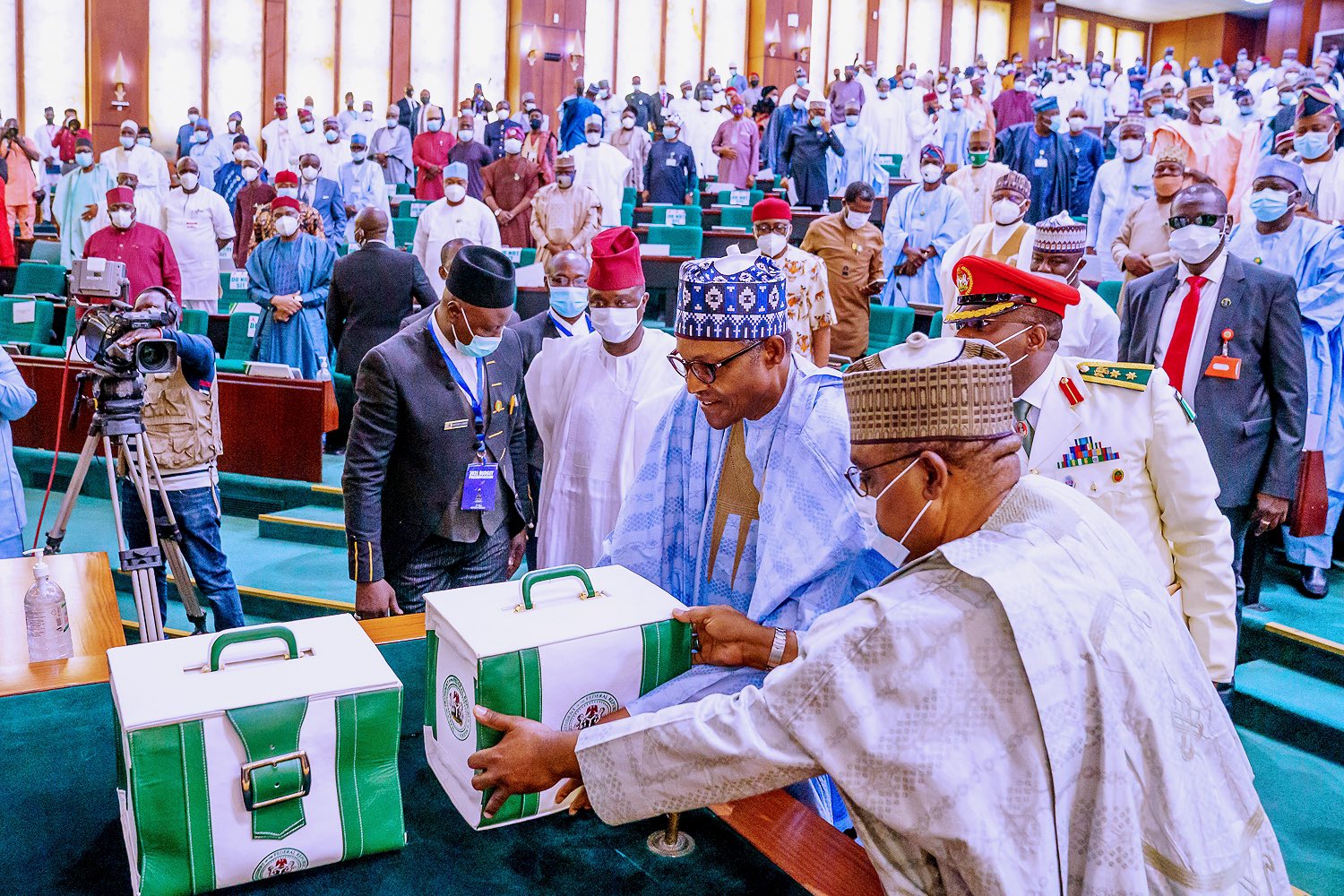
Nigerian Government Budgets N100 Billion for 2023 General Elections
The government had also increased the national budget for the fiscal year from N13.98 trillion to N16.45 trillion.
The report was based on an assessment of the revised 2022-2024 Medium Term Expenditure Framework (MTEF) submitted to the House of Representatives by President Muhammadu Buhari for approval, Vanguard reports.
The MTEF is annual, rolling three year-expenditure planning that sets out the medium-term expenditure priorities and hard budget constraints against which sector plans can be developed and refined.
It also contains outcome criteria for performance monitoring.
Meanwhile, the House had recently passed the first one containing N13.98 trillion for the 2022 national budget.
But in a letter dated October 2, 2021, addressed to the Speaker of the House, Femi Gbajabiamila, President Buhari said the need to reflect the new fiscal terms in the Petroleum Industry Act (PIA) 2021, as well as other critical expenditures in the 2022 Budget necessitated the revision of MTEF.
This comes as Gbajabiamila rebuffed every attempt by some lawmakers at Tuesday’s plenary to get the bill debated before the presentation of the 2022 budget by the President on Thursday, barring any unforeseen circumstances that may stall it.
The President’s letter saw some government agencies getting more monetary allocations.
The letter read: “It is with pleasure that: forward the Revised 2022-2024 Medium Term Fiscal ‘Framework (MTEF) for the kind consideration and approval of the House of Representatives.
“The revision was necessitated by the need to reflect the new fiscal terms in the Petroleum Industry Act (PIA) 2021, as well as other critical expenditures in the 2022 Budget.
“The underlying drivers of the 2022 fiscal projections, such as oil price benchmark, oil production volume, exchange rate, GDP growth, and inflation rate reflect emergent realities and the macroeconomic outlook and remain unchanged as in the previously approved 2022-24 MTEF&FSP.
“The PIA establishes a progressive fiscal framework aimed at encouraging investment in the Nigerian petroleum industry. This significantly alters the Oil and Gas fiscal terms and has necessitated changes in the 2022-2024 Medium Term Fiscal Framework. The fiscal effects of PIA implementation are assumed to kick in by mid-year 2022.”

